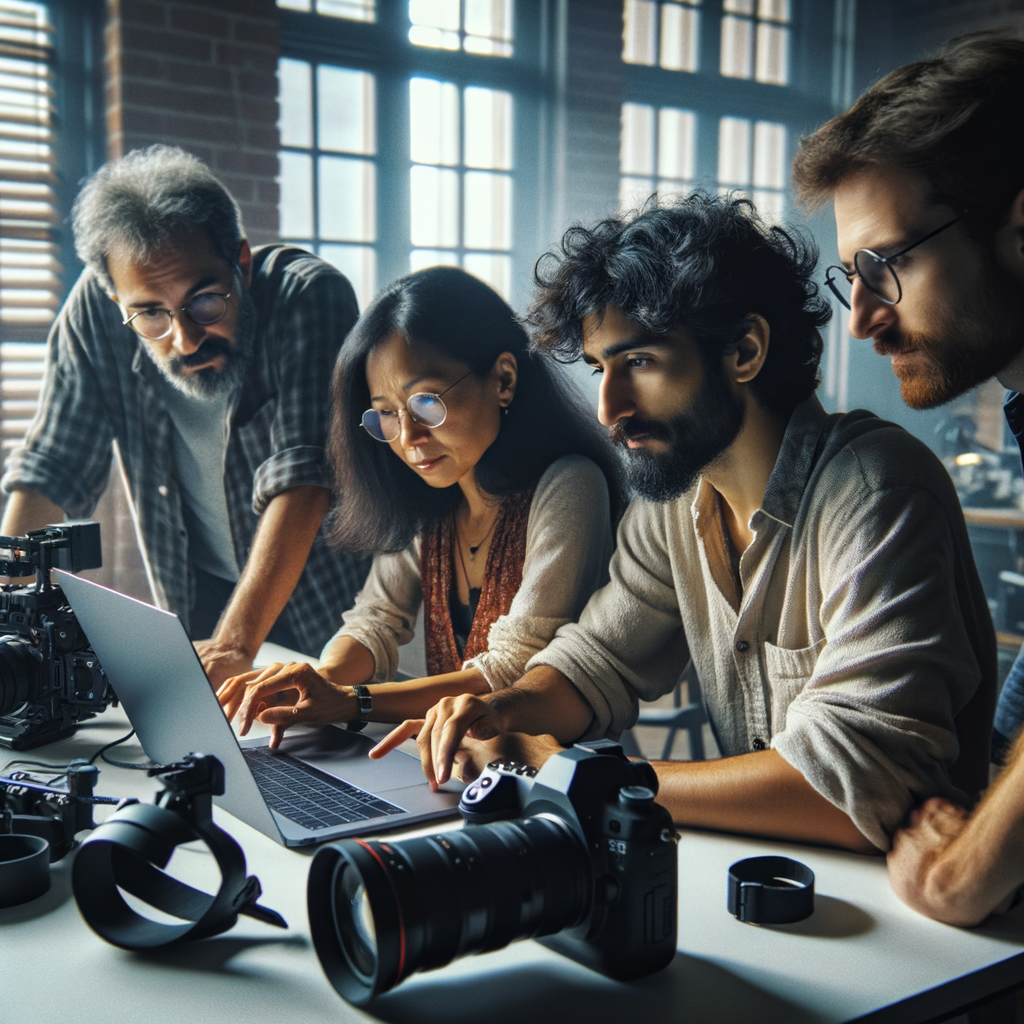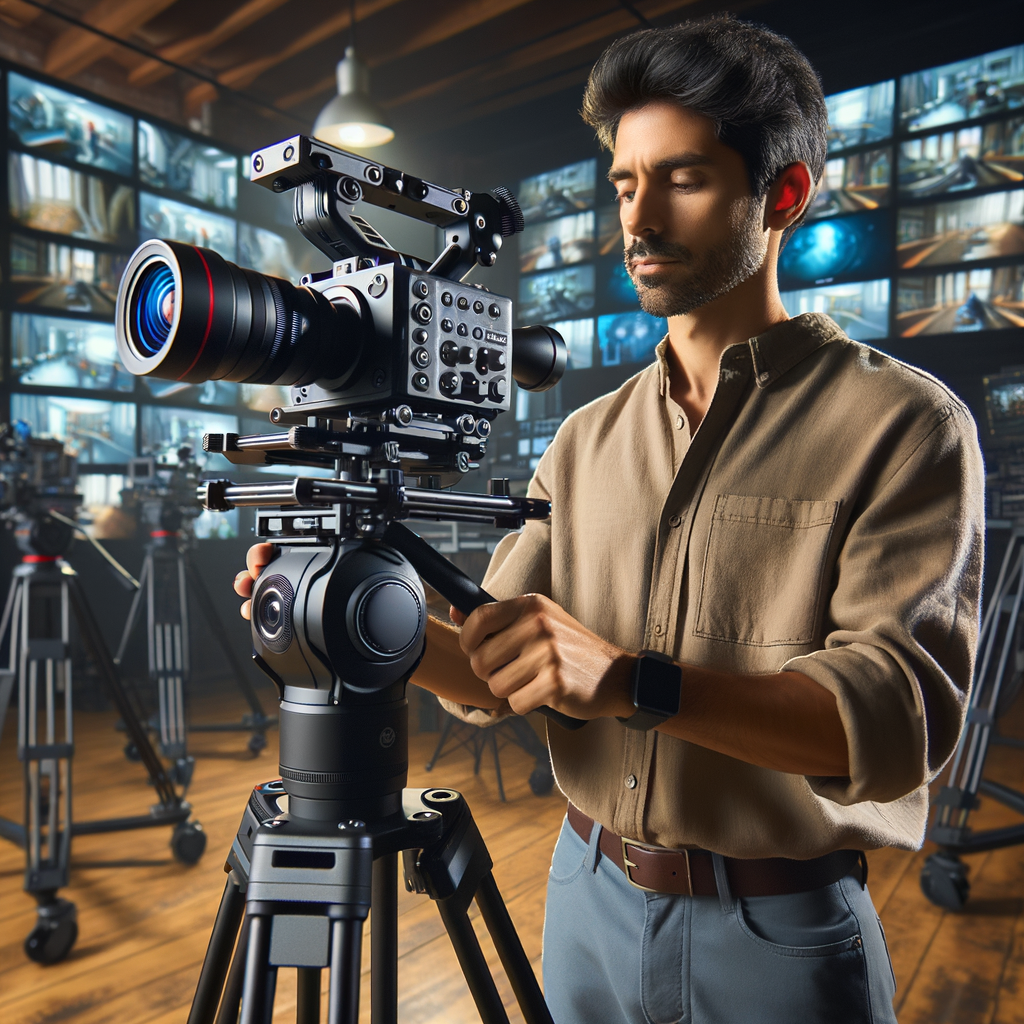From Hobbyist to Pro: Freelance Cinematographers Shaping VR’s Future
Explore how freelance cinematographers are pioneering innovative VR content, transforming immersive narratives, and redefining industry standards for virtual reality.
From Hobbyist to Pro: How Freelance Cinematographers Are Shaping the Future of Virtual Reality Experiences
For years, the art of cinematography was reserved for large studios and big-budget productions. Now, as technology becomes more accessible and storytelling evolves in new directions, freelance cinematographers—many of whom started as hobbyists—are playing a crucial role in pushing the boundaries of virtual reality (VR) content creation. As someone deeply invested in both film and emerging tech, I have witnessed firsthand how these creative freelancers are not only innovating in immersive storytelling, but also driving the standards and future trends in the VR industry.
Unlike the traditional production pipeline, where every department is tightly specialized, VR content creation demands agility, experimentation, and a keen eye for both narrative and technical detail. Independent cinematographers in the VR space often wear many hats, acting as director, camera operator, editor, and even sound designer. This flexibility is not just a necessity; it fosters innovation. By staying nimble, freelancers can quickly adapt to new camera rigs, explore different 360-degree filming techniques, and respond to trends as audiences' expectations evolve. Their willingness to experiment—unfettered by the inertia that sometimes plagues large studios—means they are often the first to try out disruptive ideas that later become mainstream.
The move from hobbyist to professional is no easy feat in a field as cutting-edge as VR. Early VR filmmakers faced steep learning curves—not just in mastering stitching software and spatial sound, but also in unlearning many rules of traditional filmmaking. For example, in VR, there is no fixed frame; the viewer controls the perspective, making the role of the cinematographer more about guiding attention than about composing shots in the classical sense. Freelancers that succeed in this niche quickly learn to see themselves not just as technicians, but as experience designers. Their focus shifts from "how does this shot look" to "how does this moment feel for someone inside the world I’m creating?"

What truly sets freelance VR cinematographers apart is their deep connection to emerging communities and trends. Since many started as hobbyists, they tend to be active contributors to online forums, virtual meetups, and niche marketplaces that support creator-driven projects. These platforms aren't just places to find gigs; they're incubators for new genres, best practices, and cross-disciplinary collaborations. I’ve seen incredible partnerships form between freelance cinematographers, gaming developers, and even fine artists—all united by a passion for redefining what it means to tell a story in 360 degrees. This grassroots innovation accelerates the development of novel techniques—like using interactive hotspots, blending CGI with live-action, or crafting truly immersive documentary experiences.

The rise of affordable VR camera rigs and prosumer editing software has dramatically lowered the barriers to entry. Today, a solo creator with a modest setup can produce high-quality VR content that would have required a major studio budget a decade ago. This democratization is one of the most exciting aspects of the VR industry right now. I frequently connect with freelance cinematographers who started by filming creative experiments in their living rooms, only to now work with clients ranging from indie game studios to global brands looking to stand out in a crowded digital marketplace. This shift is expanding the types of stories being told and allowing underrepresented voices to break into an industry that was once notoriously exclusive.
As the market for immersive content grows, the influence of freelance VR cinematographers continues to shape both the techniques and aesthetics of the medium. Their relentless curiosity and willingness to experiment make them key drivers of change, often setting the trends that major studios will later follow. Brands and content platforms are increasingly looking to freelancers for innovative ideas, knowing that their authenticity and hands-on experience in the medium translates to more engaging, memorable VR experiences for users.
Conclusion
Freelance cinematographers are at the forefront of VR’s evolution, fusing artistry and technology in compelling ways that redefine immersive storytelling. Their journey, from passionate hobbyists to industry innovators, highlights the importance of adaptability, creativity, and community engagement in shaping the future of virtual reality experiences. As VR continues to advance, these independent creators will remain vital to pushing the boundaries of what’s possible, ensuring that the medium grows richer, more diverse, and more inspiring for audiences and creators alike.
Blog Article Tags
cinematography virtual reality freelance video production vr storytelling immersive experiences future trends creator economy independent creators digital contentMore Articles
Maximizing Your Reach: Effective Social Media Strategies for Indie Creators - Discover actionable social media strategies for indie creators to engage fans, grow your audience, and increase support across disciplines.
How Freelance Web Designers Are Revolutionizing User Experience with Dynamic Responsive Techniques - Discover how freelance web designers are transforming UX in 2025 using innovative dynamic responsive techniques for seamless user experiences.
Turn Your Old Hobbies into Cash: Creative Side Hustles for Extra Income - Explore creative ways to monetize your hobbies! Learn practical side hustle ideas and discover how your passions can become profitable income streams online.
Behind the Curtain: How Music Promotion Sellers Craft Viral Campaigns - Discover how music promotion sellers engineer viral campaigns that elevate artists' visibility and drive real success in today’s competitive music industry.
Unlocking Hidden Histories: How Transcription Services Revive Oral Traditions - Discover how transcription services are uncovering and preserving overlooked oral histories, reviving forgotten cultural narratives for the digital era.


